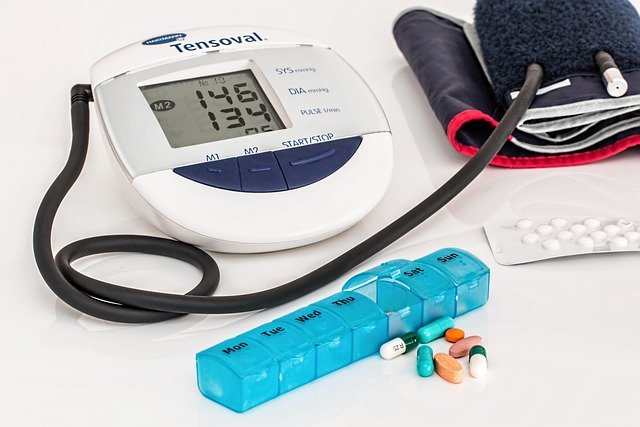Are Your Medications Putting Your Heart At Risk? Medications Linked to Atrial Fibrillation
Many common medications may impact your heart health, and some are associated with an increased risk of atrial fibrillation. Understanding which drugs to be cautious about is essential for your safety. This guide provides clear, medically-informed information to help you make informed decisions.

Many people take medications daily without considering their potential impact on heart rhythm. However, research has shown that certain drugs can trigger or worsen atrial fibrillation, a condition where the heart beats irregularly and often rapidly. This connection between medications and heart rhythm disturbances is an important consideration for anyone managing multiple health conditions or taking long-term prescriptions.
Understanding Atrial Fibrillation
Atrial fibrillation, commonly called AFib, occurs when the upper chambers of the heart beat chaotically and out of sync with the lower chambers. This irregular rhythm can lead to blood pooling in the heart, increasing the risk of stroke, heart failure, and other cardiovascular complications. Symptoms may include heart palpitations, shortness of breath, fatigue, dizziness, and chest discomfort. However, some individuals experience no symptoms at all, making the condition particularly concerning. AFib affects millions of Americans and becomes more common with age, though it can develop at any stage of life. The condition may be temporary or chronic, and its severity varies widely among patients.
Medications Associated with Atrial Fibrillation
Several categories of medications have been linked to atrial fibrillation development or worsening. Stimulant medications, including those used to treat attention deficit hyperactivity disorder and certain weight loss drugs, can increase heart rate and potentially trigger irregular rhythms. Decongestants containing pseudoephedrine or phenylephrine, commonly found in cold and allergy medications, may also affect heart rhythm. Certain asthma medications, particularly bronchodilators, can stimulate the heart and contribute to rhythm disturbances. Some antibiotics, especially fluoroquinolones and macrolides, have been associated with increased AFib risk. Additionally, nonsteroidal anti-inflammatory drugs (NSAIDs) taken regularly may elevate risk, particularly in individuals with existing heart conditions. Corticosteroids, thyroid medications when dosed too high, and some cancer treatments have also shown connections to atrial fibrillation in clinical studies.
How Medications Impact Heart Rhythm
Medications can affect heart rhythm through various mechanisms. Some drugs directly stimulate the heart muscle or the electrical pathways that control heartbeat, causing increased heart rate or irregular signals. Others may alter electrolyte levels in the blood, particularly potassium, magnesium, and calcium, which are essential for proper heart function. Electrolyte imbalances can disrupt the electrical impulses that coordinate heartbeats. Certain medications may also cause inflammation or stress to heart tissue, making it more susceptible to rhythm disturbances. The risk often increases when multiple medications are taken together, as drug interactions can amplify effects on the heart. Individual factors such as age, existing heart conditions, kidney or liver function, and genetic variations in drug metabolism also influence how medications impact heart rhythm. Not everyone who takes these medications will develop atrial fibrillation, but awareness of the potential risk is important for prevention and early detection.
What to Do If You’re Concerned
If you are taking medications and experience symptoms such as irregular heartbeat, rapid heart rate, chest discomfort, unusual fatigue, or shortness of breath, contact your healthcare provider promptly. Never stop taking prescribed medications without medical guidance, as abruptly discontinuing certain drugs can cause serious health problems. Schedule a medication review with your doctor or pharmacist to discuss all prescriptions, over-the-counter drugs, and supplements you are taking. Your healthcare provider can assess whether any of your medications might be contributing to heart rhythm issues and explore alternative treatments if necessary. They may also recommend monitoring through electrocardiograms or wearable heart monitors to track your heart rhythm over time. Blood tests to check electrolyte levels and thyroid function may be ordered, as imbalances can both cause AFib and result from certain medications. Keeping a symptom diary noting when irregular heartbeats occur and what medications you have taken can provide valuable information for your healthcare team.
Protecting Your Heart Health
Proactive steps can help minimize medication-related heart rhythm risks. Always inform healthcare providers about all medications and supplements you are taking, including over-the-counter products, as this allows them to identify potential interactions and cumulative effects. Use medications as prescribed and avoid exceeding recommended doses, particularly with stimulants and decongestants. Read medication labels carefully and be aware of ingredients that may affect heart rhythm. Maintain regular follow-up appointments with your healthcare provider, especially when starting new medications or adjusting doses. Adopt heart-healthy lifestyle habits including regular physical activity, a balanced diet rich in fruits and vegetables, adequate hydration, limited alcohol consumption, stress management, and sufficient sleep. These lifestyle factors can strengthen overall cardiovascular health and may reduce susceptibility to medication-induced rhythm disturbances. If you have risk factors for atrial fibrillation such as high blood pressure, diabetes, obesity, or a family history of heart rhythm disorders, discuss these with your doctor when considering new medications. Some individuals may benefit from regular heart rhythm monitoring, particularly when taking medications known to affect cardiac function.
Conclusion
The relationship between medications and atrial fibrillation is complex and varies among individuals. While many drugs serve essential therapeutic purposes, understanding their potential impact on heart rhythm allows for more informed healthcare decisions. Open communication with healthcare providers, careful medication management, and attention to symptoms can help balance the benefits of necessary medications with heart health protection. If you have concerns about your medications and heart rhythm, consult with a qualified healthcare professional who can provide personalized guidance based on your specific health situation and medication regimen.
This article is for informational purposes only and should not be considered medical advice. Please consult a qualified healthcare professional for personalized guidance and treatment.




